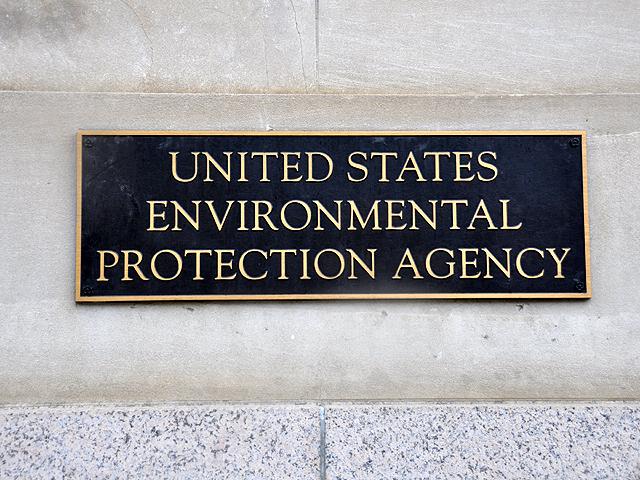EPA Holding Up on RFS Volumes
EPA Chief Discusses SREs, Touts USMCA Environmental Provisions
GLENWOOD, Iowa (DTN) -- EPA Administrator Andrew Wheeler said Wednesday his agency will not release proposed Renewable Fuel Standard volumes on Thursday, the last workday before the federal holiday on Friday.
"There's nothing coming out tomorrow on that," Wheeler said.
On a call with reporters, Wheeler was asked about rumors EPA would drop the proposed rule for RFS volumes next year right before the holiday. The proposed RFS volumes had been expected to come out sometime in June.
Wheeler also addressed the applications for small-refinery exemptions now at EPA. He noted EPA is faced with 52 SRE applications from refiners for 2011 through 2018, as well as 27 SRE applications for 2019 and one for 2020. The applications have been sent to the Department of Energy for review. The 52 applications were sent in by refiners following the language in a ruling earlier this year from the Tenth Circuit Court of Appeals.
Lawmakers and lenders in the biofuels industry have been waging public-relations efforts to discourage EPA from approving those applications. Sen. Joni Ernst, R-Iowa, is now holding up a committee vote on the nominee for the No. 2 position at EPA over the SRE issue.
Wheeler said EPA had not gotten recommendations back from the Energy Department yet.
"As I'm sure you are aware, there are a number of issues around that," Wheeler said.
P[L1] D[0x0] M[300x250] OOP[F] ADUNIT[] T[]
Some of the petitions go back to the 2012 range, and the renewable identification numbers, or RINs, for that year have expired.
"So, there are questions about whether or not they can show economic harm and what the remedy would be," Wheeler said. "But we're waiting to see what the Department of Energy has to say about the small-refinery exemptions."
Wheeler held a news conference by phone on Wednesday largely to highlight environmental provisions of the U.S.-Mexico-Canada Agreement. Wheeler said USMCA is the first trade agreement to include environmental protections in the core language of the agreement rather than as a side agreement.
"The Trump administration views this new pact as an opportunity within the confines of a trade agreement to improve the environmental standards of our trading partners," Wheeler said. "And doing so, this enables our domestic producers to compete on a fair, level playing field."
Wheeler called the environmental language part of President Donald Trump's "pro-environment legacy" and pointed out that previous administrations were not able to get such language into agreements. While Wheeler credited the president, congressional Democrats earlier this year also took credit for requiring provisions on the environment and enforcement be added to the trade agreement before they would allow USMCA to receive congressional approval.
"Thanks primarily to Democrats, it's no longer the case that the failure of one NAFTA country to ratify an environmental agreement can be used to prevent the others from being held accountable for failing to honor their obligations," Sen. Tom Carper, D-Del., said on the Senate floor in January. "New NAFTA also includes new provisions that have never been included in trade agreements before. Environmental violations will now be treated as trade violations, so when the United States does bring cases under the new NAFTA's environmental obligations, those cases will be easier to win going forward."
Wheeler's comments also exclude President Barack Obama's signing of the Paris Climate Accord, which the Trump administration has worked to withdraw from. Wheeler said the Trump administration would consider including climate change in a trade agreement, depending on what trade partners want.
"We're certainly not going to agree to anything like the Paris Climate Accord, which disadvantages the United States at the expense of other countries," Wheeler said.
Wheeler was asked specifically about the role agriculture could play in addressing environmental issues under USMCA. The administrator said EPA is working "hand in hand with the ag community on this." That includes working on issues such as pesticide use, he said. "So there are a lot of opportunities for agriculture," he said.
Wheeler said he thinks there will be economic benefits for both agriculture and the automotive industry from the environmental provisions in USMCA. He also pointed out he's visited four farms in the last six weeks, as well as state agricultural commissioners. He said EPA would work with USDA to ensure markets are open and address issues with pesticides "so that our farmers who are using different pesticides are not put at a disadvantage with our trading partners."
USMCA includes language on the protection of the ozone and protecting the marine environment from ship pollution, Wheeler said. The U.S., Canada and Mexico also agreed to harmonize air-quality monitoring and put an emphasis on litter both in waters and on land. The agreement also has language to try to stop the discarding of fishing gear in oceans, Wheeler said.
"The Trump administration is taking a special interest in combating marine litter, which is a growing problem throughout the world," Wheeler said.
The agreement has provisions in place that allow claims against any of the three countries for violations of the environmental rules in the trade agreement. Wheeler met with the environmental ministers of Canada and Mexico last week, as well as outside panels that Wheeler said were made up of indigenous people, environmental groups and industry. One area spotlighted, he said, was trying to develop a focus on marine plastic waste and stem the flow of plastic pollution, more than half of which comes from six Asian countries, he said.
"So we are, in addition to working specifically with Canada and Mexico and any marine litter here in North America, we're also trying to address the problem where the vast majority of it began, which is in the six Asian countries," Wheeler said.
Chris Clayton can be reached at Chris.Clayton@dtn.com
Follow him on Twitter @ChrisClaytonDTN
(c) Copyright 2020 DTN, LLC. All rights reserved.



